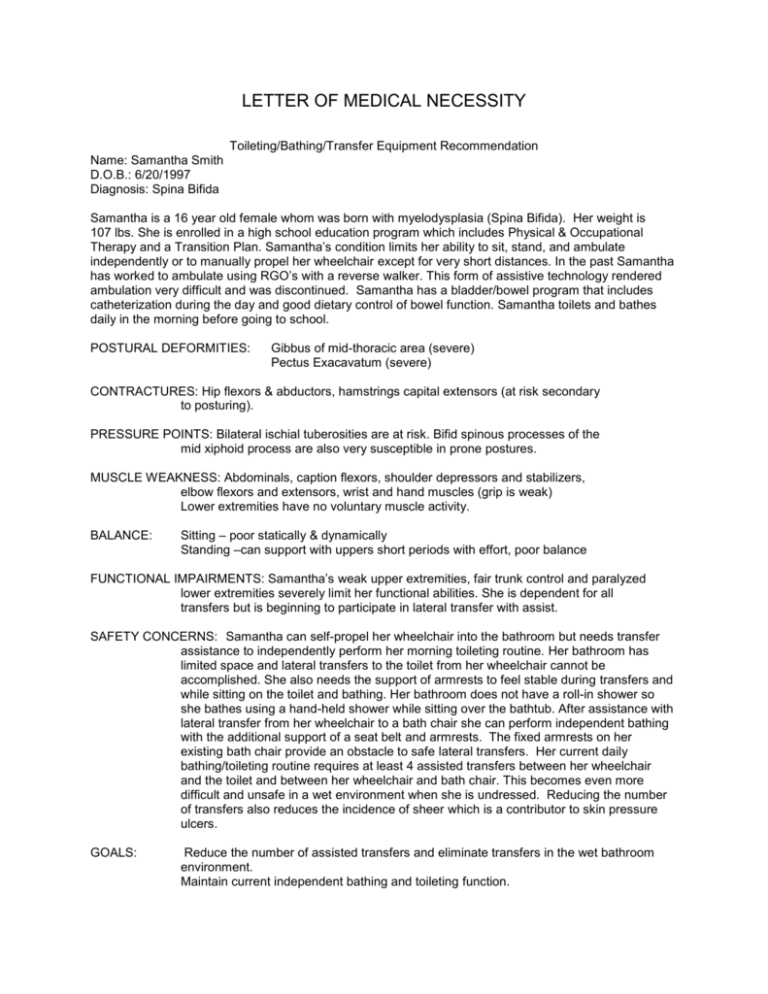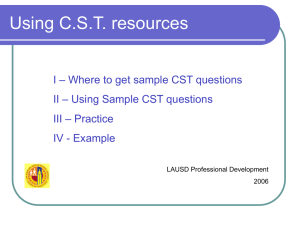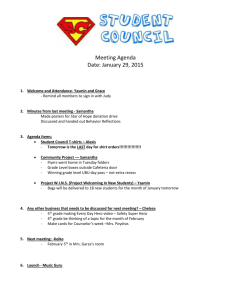DOCX
advertisement

LETTER OF MEDICAL NECESSITY Toileting/Bathing/Transfer Equipment Recommendation Name: Samantha Smith D.O.B.: 6/20/1997 Diagnosis: Spina Bifida Samantha is a 16 year old female whom was born with myelodysplasia (Spina Bifida). Her weight is 107 lbs. She is enrolled in a high school education program which includes Physical & Occupational Therapy and a Transition Plan. Samantha’s condition limits her ability to sit, stand, and ambulate independently or to manually propel her wheelchair except for very short distances. In the past Samantha has worked to ambulate using RGO’s with a reverse walker. This form of assistive technology rendered ambulation very difficult and was discontinued. Samantha has a bladder/bowel program that includes catheterization during the day and good dietary control of bowel function. Samantha toilets and bathes daily in the morning before going to school. POSTURAL DEFORMITIES: Gibbus of mid-thoracic area (severe) Pectus Exacavatum (severe) CONTRACTURES: Hip flexors & abductors, hamstrings capital extensors (at risk secondary to posturing). PRESSURE POINTS: Bilateral ischial tuberosities are at risk. Bifid spinous processes of the mid xiphoid process are also very susceptible in prone postures. MUSCLE WEAKNESS: Abdominals, caption flexors, shoulder depressors and stabilizers, elbow flexors and extensors, wrist and hand muscles (grip is weak) Lower extremities have no voluntary muscle activity. BALANCE: Sitting – poor statically & dynamically Standing –can support with uppers short periods with effort, poor balance FUNCTIONAL IMPAIRMENTS: Samantha’s weak upper extremities, fair trunk control and paralyzed lower extremities severely limit her functional abilities. She is dependent for all transfers but is beginning to participate in lateral transfer with assist. SAFETY CONCERNS: Samantha can self-propel her wheelchair into the bathroom but needs transfer assistance to independently perform her morning toileting routine. Her bathroom has limited space and lateral transfers to the toilet from her wheelchair cannot be accomplished. She also needs the support of armrests to feel stable during transfers and while sitting on the toilet and bathing. Her bathroom does not have a roll-in shower so she bathes using a hand-held shower while sitting over the bathtub. After assistance with lateral transfer from her wheelchair to a bath chair she can perform independent bathing with the additional support of a seat belt and armrests. The fixed armrests on her existing bath chair provide an obstacle to safe lateral transfers. Her current daily bathing/toileting routine requires at least 4 assisted transfers between her wheelchair and the toilet and between her wheelchair and bath chair. This becomes even more difficult and unsafe in a wet environment when she is undressed. Reducing the number of transfers also reduces the incidence of sheer which is a contributor to skin pressure ulcers. GOALS: Reduce the number of assisted transfers and eliminate transfers in the wet bathroom environment. Maintain current independent bathing and toileting function. Continue progress in participation in lateral transfers. EQUIPMENT SUMMARY: GO! AnyWhere Solutions Commode/Shower/Tub Chair Model CST GO! AnyWhere Solutions Torso/Lap Belt GO! AnyWhere Solutions Calf Straps This equipment will afford Samantha independent hygiene care while reducing the number (from a minimum of 4 to 2) of assisted transfers required to accomplish her daily morning toilet/bathing routine. These transfers can be done in a dry environment for enhanced stability and safety for the transfer. The rolling base portion of the GO! AnyWhere CST is an attendant pushed shower/commode chair. It has a toilet seat cushion that is above the existing toilet and open in the frontas well as side cut outs, allowing more room for hand access for catheterizing and perineal cleaning. The height of the GO! AnyWhere CST’s rolling base can be configured to be level with the transfer frame and the bathtub side to allow the chair to slide over into the bathtub area and a hand-held shower can be used for independent bathing. The CST has armrests to assist with sitting stability that flip back to allow for lateral transfer. This will allow Samantha to continue her progress in participating in assisted lateral transfers to/from the wheelchair in a safe and stable position outside of the bathroom environment. The CST has footrests that help with sitting stability as well as provide support for pushing during bowel evacuation. The footrests swing away for transfers. The GO! AnyWhere Commode Shower and Tub Chair (CST) has an optional torso seat lap belt available for enhanced sitting stability and safety during mobility and bathing/toileting activities. EQUIPMENT COMPONENT GO! AnyWhere Solutions Commode/Shower/Tub Chair Model CST GO! AnyWhere Solutions Torso/Lap Belt GO! AnyWhere Solutions Calf Straps This recommendation has been made after consultation with this patient’s doctor, Physical Therapist and a Certified Rehabilitation Technology Specialist. The goals of this system are to maintain independent bathing and toileting function and improve safety by reducing the number of dependent transfers and enabling transfers to occur outside of the wet bathroom environment. . Sincerely, Pat McDonald OTR/L





